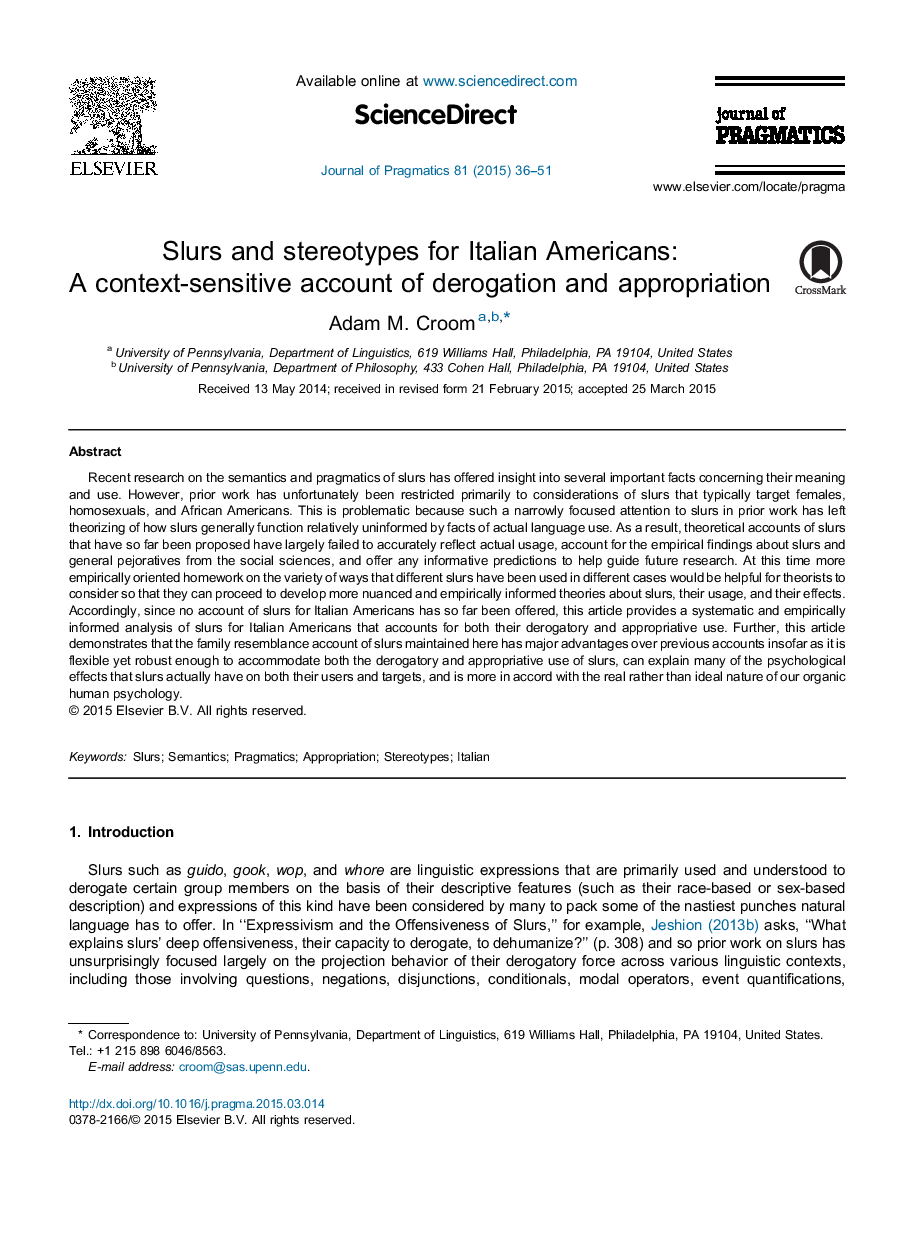| Article ID | Journal | Published Year | Pages | File Type |
|---|---|---|---|---|
| 932620 | Journal of Pragmatics | 2015 | 16 Pages |
•Reviews common slurs for Italian Americans.•Reviews common stereotypes for Italian Americans.•Offers a context-sensitive account of derogation and appropriation.•Accounts for the psychological effects that slurs have on both their users and targets.
Recent research on the semantics and pragmatics of slurs has offered insight into several important facts concerning their meaning and use. However, prior work has unfortunately been restricted primarily to considerations of slurs that typically target females, homosexuals, and African Americans. This is problematic because such a narrowly focused attention to slurs in prior work has left theorizing of how slurs generally function relatively uninformed by facts of actual language use. As a result, theoretical accounts of slurs that have so far been proposed have largely failed to accurately reflect actual usage, account for the empirical findings about slurs and general pejoratives from the social sciences, and offer any informative predictions to help guide future research. At this time more empirically oriented homework on the variety of ways that different slurs have been used in different cases would be helpful for theorists to consider so that they can proceed to develop more nuanced and empirically informed theories about slurs, their usage, and their effects. Accordingly, since no account of slurs for Italian Americans has so far been offered, this article provides a systematic and empirically informed analysis of slurs for Italian Americans that accounts for both their derogatory and appropriative use. Further, this article demonstrates that the family resemblance account of slurs maintained here has major advantages over previous accounts insofar as it is flexible yet robust enough to accommodate both the derogatory and appropriative use of slurs, can explain many of the psychological effects that slurs actually have on both their users and targets, and is more in accord with the real rather than ideal nature of our organic human psychology.
